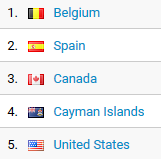In his excellent article Who owns a scientist’s mind?, historian Douglas O’Reagan describes how business managers have tried to protect the know-how of their companies. Firms own real estate, machines, software and patents. But how can they control the ideas and experience inside their employees’ minds?
Because the article was written for Physics Today, the focus is on the tacit knowledge of industrial physicists. However, some of its lessons extend beyond engineering.
I just want to comment on one thing. The author describes Knowledge Management (KM) as a fad:
Business interest in controlling tacit knowledge did not fade, however. It would return in several forms, perhaps most visibly in a 1990s business management fad called knowledge management (KM).
It’s true that management gurus and software vendors tend to hype expectations in order to sell ‘solutions’. But good knowledge management is very valuable to companies and most definitely not a fad.
So I was relieved that O’Reagan is more nuanced about KM later in his article. He explains how the focus of KM shifted from technology to human-centered KM1. In addition, some practices seem so obvious now that we don’t think of them as KM anymore:
At a basic level, some of KM’s key insights, such as the value of encouraging employees to maintain informal social networks throughout the industry, became even more a normal part of business than they had been.
In my own courses, I always stress that KM doesn’t imply extra tech or bureaucracy. On the contrary, if you’re doing it right, you’ll have more time to focus on your core competencies.


